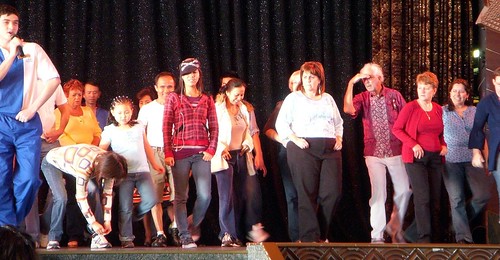 (Note: Updated to add additional support options, 9:32 am Friday – I’ll keep adding as I find them, so check back if you are interested)
(Note: Updated to add additional support options, 9:32 am Friday – I’ll keep adding as I find them, so check back if you are interested)
Ethan Zuckerman’s insightful post, Kenya: heartbreak and hope reflects my feelings as
I think of both my friends and colleagues in Kenya on a personal basis, and the larger picture of impact of the events in Kenya on Africa and the world. If you care about the world, about the role of citizen journalism (particularly the interface between online and offline and the bearing of witness to events), read Ethan’s article. He links to many sources of on the ground news, which is critical both to the work in Kenya and our understanding of how we can best be of support.
That brings me to our role in the “hope” part. What do we do to lend our energy to others trying to find peaceful solutions to the unrest in Kenya? Again, our membership in this global village made possible by online connections gives us each a chance to amplify the news from Kenya and bolster the work of the peacemakers. And for me, I am trying to always ask myself how can we do this in a way that does not impose our will upon them, but simply offers our support and resources and they choose what and how to do it. I support peace and you, on the ground, have the knowledge and wisdom to figure out how you want to do that. That’s the beauty of Andrius’ approach for activism and Ethan/Global Voices’ approach for communication.
To that end, here are a few things you can get involved in.
Tireless activist Andrius Kulikauskas of Minciu Sodasoffers a page of ideas here.
Ways to help include:
* making phone calls to Kenya:
http://www.worknets.org/wiki.cgi?KenyansToCall
* write to your foreign minister:
http://www.avaaz.org/en/kenya_free_and_fair/
* join our chat: http://www.worknets.org/chat/
* join Samwel Kongere’s email group:
http://groups.yahoo.com/group/mendenyo/
* help us create peace songs and videos for Kenya
* share this letter (posted on the Yahoogroups site)
* contribute money for Kenyan “independent thinkers” by PayPal (details at http://www.ms.lt/ – Andrius is updating the Kenya work at the top of his page.)
The Yahoogroup offers you a chance to get updates from activists on the ground, including a project to build a human acrobat pyramid as part of a peace march. Art and beauty as activism. Read the stories from the ground. Then decide what you can do.
What I find interesting is the use of SMS as a communication and activist tool, but what happens when you can’t afford the phone bill? Andrius is seeking and delivering funds to pay for phone cards for peace activists in Kenya using PayPal.
Other Options
- Ory Okolloh, the Kenyan Pundit, is blogging all the news she can find, even though she has had to leave Kenya and go back to S. Africa. In this post, she is looking for some coding help to do a mashup to record damage on the ground using Google earth – documentation that can be used later in reconciliation processes. (Sending beams, Ory!)
- Donate to the Kenyan Red Cross.
- For getting the latest and amplifying that news, keep an eye on Global Voices.
- List of bloggers covering the situation.

 Beth Kanter said…
Beth Kanter said… annelizbeth said…
annelizbeth said… Take a minute to read this great post from Bob Sprankle (who says he is an elementarytechnology integrator – wow, that’s a new one on me!)
Take a minute to read this great post from Bob Sprankle (who says he is an elementarytechnology integrator – wow, that’s a new one on me!)